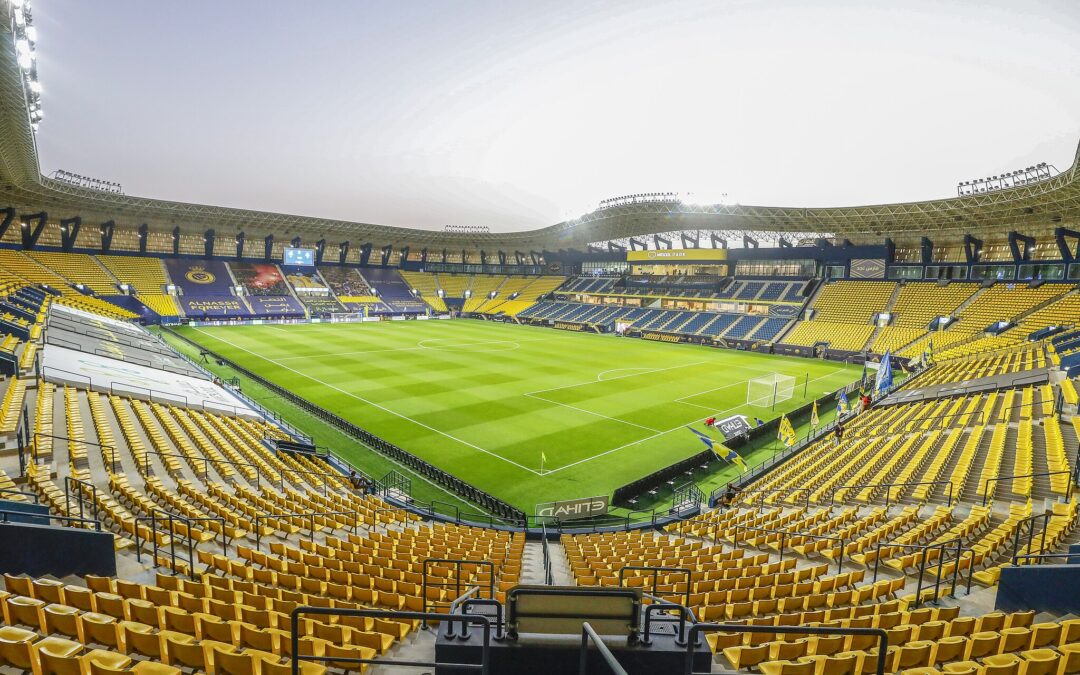Under the guidance of Crown Prince Mohammad bin Salman, Saudi Arabia has dramatically transformed its image and economy, seeking to alleviate its reliance on oil and gas while moving toward tourism-based initiatives and projects. These efforts, part of Vision 2030, include hosting more than 80 major international sporting events since 2018, which have attracted more than 2.6 million visitors. Prominent events include the F1 Saudi Arabian Grand Prix, Next Gen ATP Finals, FIFA Club World Cup, and championship boxing showdowns.
Saudi Arabia has also planned and launched more than a dozen giga projects worth hundreds of billions of dollars. These include King Salman Park, expected to be the largest urban park in the world; the 367-square-kilometer entertainment and culture capital Qiddiya; and Neom, an ambitious futuristic development with 10 unique regions to be constructed over 16,415 square kilometers of desert landscape.
Here’s an updated look at the state of the Saudi construction market and its plans for these and other major infrastructure projects.
World’s Largest Construction Market
As a testament to the Kingdom’s efforts to construct some of the most ambitious and expensive developments in the world, a 2024 report by property consultancy Knight Frank notes that Saudi Arabia will have the largest construction market in the world by 2028. It has already finished or begun construction on in excess of $1.25 trillion worth of development projects since 2016, when it launched Vision 2030. The Knight Frank report revealed the Kingdom had exceeded $140 billion in industry output during the first half of 2024, up 43 percent from the same time in 2023.
Not surprisingly, Riyadh and surrounding areas are where the majority of construction efforts are taking place, accounting for about 40 percent of the Kingdom’s existing contracts. The residential and energy and utilities sectors are receiving the bulk of the investment. The government anticipates a total investment of more than $3 trillion by 2030 to fund all major projects, but there are some concerns that it won’t meet this goal or be able to deliver all projects on time, according to recent reports.
Scaling Back Giga Projects?
There has been skepticism about Saudi Arabia’s massive development projects, including Neom and Qiddiya, since the Crown Prince first announced Vision 2030. While bin Salman noted “we can keep proving them wrong” in regards to those skeptics in a July 2023 national broadcast program, it appears that several projects have stalled in 2024. Recently, an unnamed advisor associated with the Saudi government told BBC that projects are being reviewed and many could be scaled back or delayed. Neom, in particular, is unlikely to be delivered as planned.
Announced in 2017, the $500 billion giga project was originally expected to feature 10 futuristic cities in the northwest region of the country. The Line, the most ambitious of these cities, was promoted as a “carbon-free linear city” connected by parallel skyscrapers that would extend for 170 kilometers and accommodate 9 million residents. Now, project developers anticipate only having about 2.4 kilometers of the city completed by 2030. It’s also unclear if it will include all of the promised features, such as an ultra-high-speed train and flying taxis.
Speaking with BBC, Neom advisory board member Ali Shihabi said these plans were meant to have wildly ambitious targets: “It was meant to be overambitious, with the clear understanding that only a part of it would be delivered on time. But even that part would be significant.”
Volatile oil prices have been a major hindrance in the delivery of these projects. In June, the Brent crude oil price was hovering near $80 a barrel, down about $16 from the price Saudi Arabia requires to balance its budget, according to the International Monetary Fund. In the same month, the Kingdom sold more than $11 billion worth of shares in Saudi Aramco in an effort to fund the Public Investment Fund (PIF).
Building Massive Stadiums
Despite budget concerns over some projects, Saudi Arabia continues to push ahead with ambitious sporting infrastructure projects to attract major international events. In July, it announced plans for a 92,000-seat stadium in Riyadh that, once complete, will also feature 300 VIP seats, 120 hospitality suites, and a 150-seat suite designated for Saudi royals. Known as the King Salman Stadium, it will host matches for the Saudi national football team and is expected to be completed by 2029. The 660,000-square-meter site on which the stadium will be built will also have an Olympic-sized swimming pool, athletic track, training fields, and facilities for basketball and volleyball.
The Kingdom is also building a 47,000-seat stadium, expected to be complete by 2026 in time to host the 2027 Asian Football Confederation Cup.
New Airport in Riyadh In order to accommodate a rapid increase in inbound passengers for its tourism-based projects or major events like Riyadh Expo 2030, Saudi Arabia is also constructing a 57 square-kilometer airport development capable of handling in excess of 100 million passengers per year. Mace, a United Kingdom construction company, is leading construction efforts for the six-runway King Salman International Airport, which will be the largest in the world.

